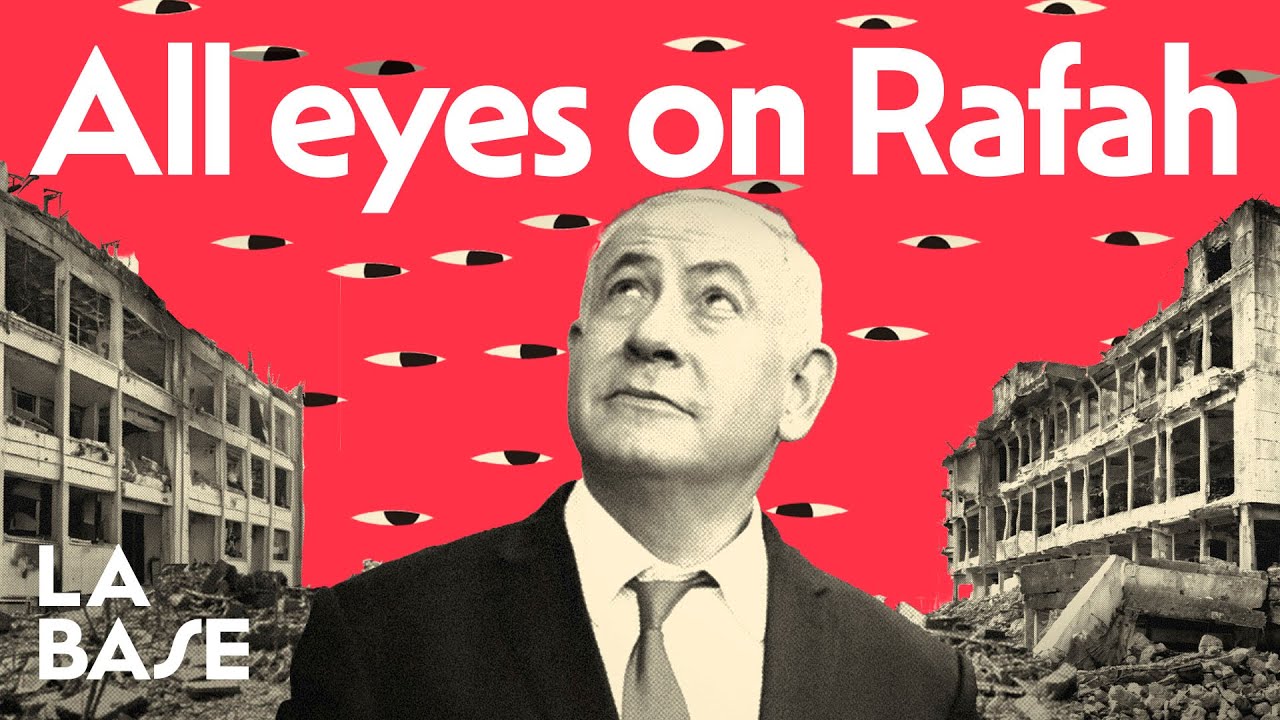The Dark Truth about Weapons Industry | Exposed by Dhruv Rathee
Summary
TLDRThis video highlights the complex and often controversial relationship between global arms manufacturers, governments, and wars like the Israel-Palestine conflict. It explores how private weapons companies, particularly in the U.S., profit from war, supported by government funding and taxpayer money. The video emphasizes the hypocrisy of leading arms-exporting nations, including members of the UN Security Council, and how political and financial interests fuel global conflicts. It also touches on the broader implications of arms sales, including the influence of mercenaries and the impact on ordinary citizens, concluding with a call for critical media coverage.
Takeaways
- 💣 The Israel-Palestine war has led to a significant increase in profits for American weapons manufacturers, with stocks surging by $30 billion since the conflict began.
- 💼 American defense contractors like Raytheon, General Dynamics, Lockheed Martin, and Northrop Grumman have experienced substantial financial gains due to the conflict.
- 🔫 The U.S. has a longstanding arms supply deal with Israel, providing $3.8 billion annually, making the U.S. responsible for 92% of Israel’s imported weapons.
- 🛑 Despite political alignments, the global weapons industry prioritizes profit over alliances, with U.S., Russia, and China being the largest global arms exporters.
- 🌍 The top five arms exporters, including the U.S., Russia, France, China, and the U.K., account for over 75% of global arms sales and are all permanent members of the UN Security Council.
- ⚔️ The arms trade contributes to global conflicts, with these exported weapons fueling wars across multiple regions, including the Middle East and Africa.
- 🔫 In the U.S., lax gun laws have led to a high number of mass shootings, with more than 500 incidents reported by mid-September 2023 alone.
- 🪖 Private military companies like Russia's Wagner Group and the U.S.'s Blackwater have increasingly taken over military operations, funded by taxpayer money, and have been involved in several global conflicts.
- 💵 Politicians often benefit financially from arms sales through investments in weapons companies, creating conflicts of interest in military policy.
- ⚖️ The global arms industry profits from war and conflict, making the prospect of peace a threat to its business model.
Q & A
What is the financial impact of the Israel-Palestine war on American weapons manufacturers?
-The Israel-Palestine war has led to a surge in the stock prices of American weapons manufacturers, with companies like Raytheon and General Dynamics benefiting significantly. These companies have seen their stocks rise by $30 billion since the war began.
How much military aid does the United States provide to Israel annually?
-As per a deal signed in September 2016 during President Obama's tenure, the United States provides $3.8 billion in military aid to Israel annually.
What percentage of Israel's imported weapons come from the United States?
-A staggering 92% of Israel's imported weapons come from the United States, showing the dominant role the U.S. plays in arming Israel.
Which countries are the top five global arms exporters?
-The top five global arms exporters are the United States, Russia, France, China, and the United Kingdom. These nations, which also hold permanent positions on the United Nations Security Council, account for over 75% of global arms exports.
Why is it difficult for the United Nations to pass a resolution to curtail global arms exports?
-It is difficult because four out of the five permanent members of the United Nations Security Council—United States, Russia, China, and France—are among the world's largest arms exporters. These nations have financial and political interests in the global arms trade.
What was the result of Australia's strict gun control measures following the 1996 mass shooting?
-After the 1996 mass shooting in Port Arthur, Australia implemented strict gun control measures, including the National Firearms Agreement. Over 650,000 privately owned guns were seized, and mass shootings have become rare in Australia since then.
Why are private military companies, like the Wagner Group, used in wars instead of national armies?
-Private military companies are used because they are more cost-effective for governments. They handle the financial responsibilities that come with warfare, such as pensions and health insurance, and the deaths of private soldiers do not count toward official military casualties.
How do private companies in the arms industry benefit from global conflicts?
-Private arms manufacturers profit from the sale of weapons during global conflicts. These companies, like Lockheed Martin and Northrop Grumman, sell weapons to both sides of conflicts and have no loyalty to national alliances, focusing solely on maximizing profits.
How does the involvement of private military companies complicate modern warfare?
-Private military companies complicate warfare by introducing non-state actors into conflicts, making it difficult to track casualties and legal accountability. For example, mercenaries fight on behalf of nations, but their deaths are often unreported, creating ambiguity in war data.
Why do some politicians personally benefit from wars and arms sales?
-Some politicians benefit because they have personal investments in arms manufacturing companies. By influencing military policy and approving defense contracts, these politicians profit from the very conflicts they are supposed to help resolve.
Outlines

このセクションは有料ユーザー限定です。 アクセスするには、アップグレードをお願いします。
今すぐアップグレードMindmap

このセクションは有料ユーザー限定です。 アクセスするには、アップグレードをお願いします。
今すぐアップグレードKeywords

このセクションは有料ユーザー限定です。 アクセスするには、アップグレードをお願いします。
今すぐアップグレードHighlights

このセクションは有料ユーザー限定です。 アクセスするには、アップグレードをお願いします。
今すぐアップグレードTranscripts

このセクションは有料ユーザー限定です。 アクセスするには、アップグレードをお願いします。
今すぐアップグレード関連動画をさらに表示

La Base 4x133 | Israel invade Rafah, último reducto de la población palestina en Gaza

Israel Palestine Conflict | Israel Palestine Issue Malayalam | Al Aqsa | Jerusalem | alexplain

El origen del conflicto entre Israel y Palestina explicado En Simple

'India has never been for de-dollarization, no proposal for BRICS currency,' says EAM S Jaishankar

【高校生のための政治・経済】パレスチナ問題#17

Kenapa Wilayah Palestina terbagi dua?
5.0 / 5 (0 votes)
